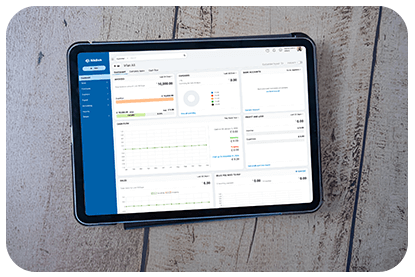19 April 2024
How to Keep Track of Business Expenses
Running a business comes with many responsibilities, and one of the most important is keeping track of your expenses. Proper expense tracking not only helps you stay organized but also ensures that your business remains financially healthy. Wondering how to do it effectively? Let’s dive in!
Why Tracking Business Expenses is Important
Benefits of Tracking Expenses
Tracking your business expenses ensures that you know exactly where your money is going. It helps you:
- Manage cash flow effectively
- Make informed financial decisions
- Prepare accurate tax returns
- Identify cost-saving opportunities
Risks of Not Tracking Expenses
Failing to track expenses can lead to financial chaos. You may face:
- Cash flow problems
- Missed tax deductions
- Difficulty in financial reporting
- Potential legal issues during audits
Types of How to Keep Track of Business Expenses You Should Track
Fixed Expenses
These are recurring costs like rent, salaries, and utility bills. Tracking fixed expenses helps you plan your monthly budget.
Variable Expenses
Variable expenses change based on your business activities. These include marketing costs, travel, and office supplies.
Unexpected Expenses
Every business faces unexpected costs, such as equipment repairs. Keeping a record of these ensures you’re prepared for surprises.
Methods to Keep Track of Business Expenses
Manual Tracking
Using a Spreadsheet
A simple Excel or Google Sheets file can help you log and categorize expenses. It’s cost-effective but requires regular updates.
Paper Records
Some businesses prefer keeping physical records. While traditional, it can be cumbersome and prone to errors.
Accounting Software
Tools like QuickBooks and FreshBooks automate expense tracking and integrate with bank accounts, saving time and reducing errors.
Mobile Apps
Apps like Expensify and Wave allow you to expense tracker app on the go, scan receipts, and generate reports instantly.
Setting Up an Expense Tracking System
Organizing Expense Categories
Categorize your expenses into fixed, variable, and unexpected costs to get a clear picture of your spending habits.
Creating a Routine for Tracking
Set aside time each week to update your records. Consistency is key to accurate tracking.
Establishing a Budget
Having a budget ensures that you don’t overspend and can manage your business finances more effectively.
Best Tools for Tracking Business Expenses
QuickBooks
A popular accounting tool that offers robust features for tracking expenses, generating reports, and preparing taxes.
QuickZeros
QuickZeros mobile app makes it easy to log expenses, scan receipts, and create expense reports.
Wave
A free accounting tool ideal for small businesses that need basic expense tracking.
FreshBooks
An intuitive platform that simplifies expense tracking, invoicing, and financial reporting.
How to Store Receipts Efficiently
Physical Storage Solutions
Use folders or filing cabinets to organize your paper receipts by date or category.
Digital Receipt Storage
Scan and store receipts in cloud-based platforms like Google Drive or Dropbox to access them anytime.
Understanding Tax-Deductible Expenses
Common Tax-Deductible Expenses
These include office rent, business travel, utilities, and employee salaries.
How to Maximize Tax Deductions
Keep detailed records and categorize your expenses correctly to ensure you claim all eligible deductions.
Tips to Automate Expense Tracking
Integrating Tools with Bank Accounts
Many tools allow you to link your bank account to automatically track and categorize expenses.
Setting Up Automatic Reports
Use software that generates monthly or quarterly reports to review your expenses effortlessly.
How to Review and Analyze Your Expenses
Monthly Expense Reviews
Regularly reviewing your expenses helps you spot trends and identify areas where you can cut costs.
Identifying Cost-Saving Opportunities
Analyzing your spending patterns can reveal unnecessary expenses that you can eliminate or reduce.
Common Mistakes to Avoid When Tracking Expenses
Mixing Personal and Business Expenses
Always keep your personal and business finances separate to avoid confusion and potential legal issues.
Not Keeping Detailed Records
Lack of detailed records can make it difficult to prepare financial reports or file accurate tax returns.
Legal Requirements for Business Expense Tracking
Requirements by Law
Many jurisdictions require businesses to keep financial records for a certain number of years.
Audit Preparation
Accurate recordkeeping helps you stay prepared in case of an audit, reducing stress and potential fines.
How to Track Expenses for Small vs. Large Businesses
Small Business Expense Tracking Tips
Expense tracking for small business can benefit from using free or low-cost tools and simple spreadsheets.
Large Business Expense Management
Larger businesses require more sophisticated tools to manage complex expense tracking systems.
Future Trends in Business Expense Tracking
AI and Automation
Artificial intelligence is transforming expense tracking by automating data entry and categorization.
Blockchain for Expense Management
Blockchain technology offers a secure and transparent way to track and verify business expenses.
Read More About: Small Business Expense Tracking: Tips for Financial Success
Conclusion
Tracking business expenses is essential for maintaining financial health and ensuring long-term success. By using the right tools and strategies, you can simplify this process and focus more on growing your business. Start small, stay consistent, and watch your financial management improve over time.




